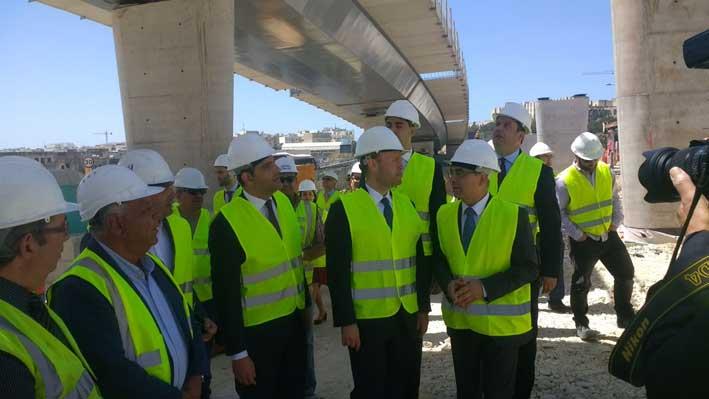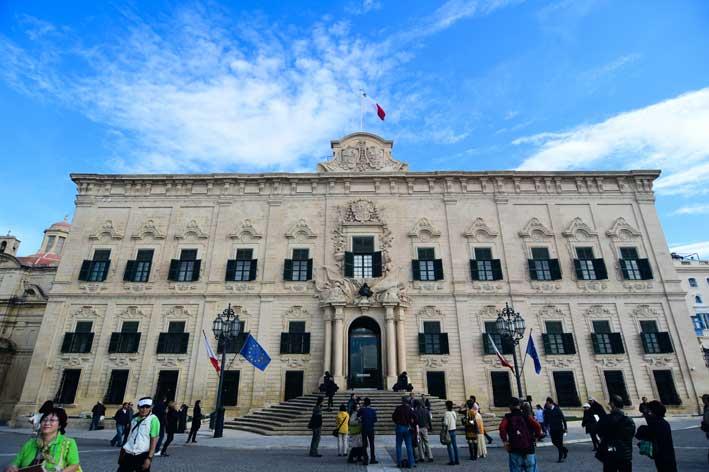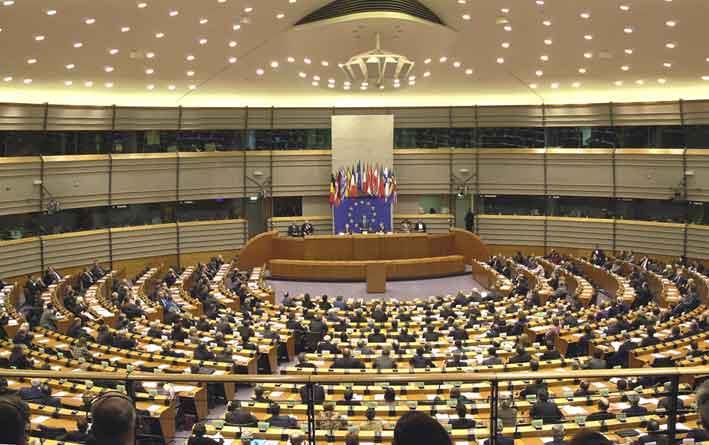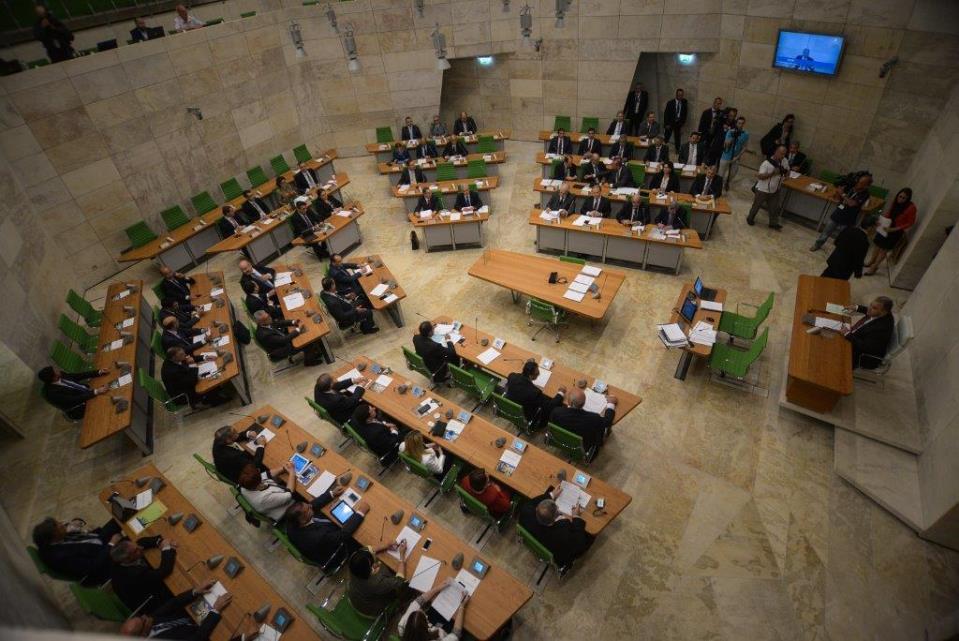Prime Minister Joseph Muscat said he will not contest another election.
Interviewed by Reno Bugeja on Dissett, the PM announced his intentions as a group of Labour supporters started to circulate a petition to urge him to stay on.
Outgoing Deputy Prime Minister Louis Grech will take on a role of adviser to the Cabinet, Dr Muscat said this evening.
Grech, who still holds the position as PL deputy leader, did not contest the last election, which saw Labour confirm their 35,000 majority.
Dr Muscat said Grech’s role as consultant will see him continue to attend cabinet meetings and he will be tasked with overseeing the implementation of the electoral manifesto.
Interpretation of election results
Asked about the election results, Dr Muscat said the people weighed out all arguments, and took a clear decision. “I cannot provide a concise argument for a complicated issue. I do not think the people who voted for the Labour movement in 2013 are the same people who made up the 35,000 majority this time around,” he said.
He believes there were movements on both sides of the political spectrum. “I think this is a totally new phase of Maltese politics. This is a phase where everybody has something to learn, not just the Opposition but also the Labour Party. Once we have all the results, we need to analyse them both from a statistical point of view but also from a political point of view.”
Dr Muscat confirmed that he will not be running for a third term in government.

More experience in the second mandate
He said that he will see that he learns from the mistakes committed in the first legislature. “I am not saying that throughout this second mandate I will not make mistakes, but I think there were things I was criticised on, big and small, which I will try to correct. Not just because I would have made a mistake, such as the issue of Cafe Premier. The aim of that was genuine, but the mistake was not allowing permanent structures to carry out their work.”
The Cafe Premier scandal , which was the first of many that characterised the previous administration, refers to taxpayers forking out an unprecedented sum of €4.2 million to pay back the café's outstanding €2.5 million bank loan, their income tax and VAT arrears, energy bills, ground rents and other creditors of the owners of the Café Premier - in a highly controversial decision to buy back a 65-year emphyteusis from the owners.
Dr Muscat said he will not allow similar mistakes to happen. “I will not allow another mistake like that to occur. I was criticised for using my own car. In my view, I was saving the government some money. However, I was heavily criticised for this so I have taken the decision to donate it to the PL so that they can auction it off. I will be using a government vehicle from now on. In reality this will cost more money, but up until the final electoral debate this was brought up in a very negative light. If this is something that irritated people, I will use a government car and this will cost more money”.

Cabinet changes
Dr Muscat said that social housing will be given importance in the next five years. The minister who will be made responsible will not only take care of assigning accommodation for people, but also to oversee the €50 million project to build more social housing.
Dr Muscat said there will be a focus on infrastructure.
He will retain a high number of ministers and parliamentary secretaries, saying there will be no drastic changes.
Was your Cabinet too large?
Asked about his Cabinet of Ministers, the Prime Minister said he believed the cabinet of Dr Lawrence Gonzi was too small.
Experience shows that when you have a focus cabinet performs better. Health was always diluted with other ministries under the Gonzi administration, something with which Dr Muscat does not agree.
“I am results driven, when we had a person who was focused on health alone, we delivered,” he said.
There are other cabinet functions which will take an important role in relation to citizenship, visa management and work permits. These are sectors where we have made much improvement, thanks to Ministers Manuel Mallia, Owen Bonnici and Carmelo Abela, but the work was scattered. You have foreign affairs ministries, education and employment ministries and the police under separate ministries doing related work.

Forming a cabinet?
The Prime Minister said that there are four criteria which he will be considering: competence, the results achieved by the candidate, seniority, and the last criteria is geographical distribution.
“These are all issues that can go against each other. Once I have the full list of elected candidates before me, I will make a SWOT analysis and take my decision from there,” he said.
[SWOT is a marketing term referring to Strengths, Weaknesses, Opportunities, Threats]
He would not be drawn into giving out any names. “Number one it would not be correct of me to do this,” he said. “Secondly, I could mention a name of somebody who does not end up being elected into power, despite my personal wishes to see them in Cabinet. Thirdly I believe it would be much more correct to speak with all the persons involved.”
He said that the new Foreign Minister should make his predecessor George Vella as a point of reference.
The composition of this new government will see a mixture of experience and competence, Dr Muscat said. “This does not mean that a person who was a Minister and now does not find himself/herself in cabinet did not carry out their duties, but other permutations and considerations also come into play.”

Malta’s reputation
Asked about Malta’s reputation on the international stage, which was hit hard because of the Panama Papers scandal and other situation, Dr Muscat said that “For starters, the more we speak about this the more damage we are doing. I would start worrying about damage if I switched on CNN and Sky and saw that everybody was speaking about Malta, which is not the case.
He said there is always need for action related to Malta’s image, “but I do not see the need for a tour-de-force on this. Obviously, next week, I need to go to the European Parliament, because friends of the Nationalist Party submitted a request for an EP discussion on Malta. There was enormous pressure on the conference of presidents of the EP so that this debate takes place in the middle of the electoral campaign. This did not happen because we spoke to certain parliamentary groups, and they did not want the EPP to use Malta”.
“I have every right to defend myself and my country, I will not have an aggressive attitude, but I will answer. Let us see the Opposition’s attitude. This is their first test; let us see their attitude throughout this debate. If the three PN MEPs get up and speak against Malta, then this will be a failed test. They must change their tactics.”
Asked about the invitation to appear before the PANA committee, Dr Muscat said Commission President Jean-Claude Juncker went before the committee and answered questions and “I have no problem doing this. I want to meet them once the magisterial inquiry is done.”
The Prime Minister said he would have spoken to the PANA committee if they had asked to meet him when they visited in February. “They sent for me (later) because they were instigated by the Opposition, after the lie on Egrant was said against me and my wife. I didn’t see the point of arguing my case before them until the magisterial inquiry is published”.
He said that he is waiting for the results of the inquiry, and “I will then take all advice on what to do next, even legal advice. I will take all necessary action to defend Malta and myself. Today, I cannot anticipate my actions until I have the report in my hand. Last time I commented about this I was accused of applying pressure on the Magistrate, so I am taking a step back from commenting. I learnt my lesson in this case.

Convening of Parliament
He said he has decided to convene Parliament soon because “we have many commitments and laws. There are many budgetary laws and estimations that must be overseen. If we do not do this until summer, they would need to be done in September/October, but at that time we will be working on the budget.”
All ministries and sectors have been suspended for the last month, therefore there is much work that needs to be carried out.
He said that the first bill will be to introduce gay marriage, but other immediate work will be related to housing, rent laws, fixing up our roads and discussions with social partners to introduce bank holidays.
He opened up to the possibility of appointing a commissioner for standards in public life. “This needs to be done – but at this point we have an Opposition without leadership. How can I appoint a commissioner without an Opposition with whom to discuss? I would need a sign from the Opposition on whether they would like us to wait on this or want us to go ahead.”
The Attorney General together with the justice Minister will start working immediately to draft the Constitutional amendment that if a politician is caught out in wrongdoing they will be immediately removed.
Discussions with the Opposition need to take place. “We also need to discuss on a mechanism for the quota for women, reducing voting age at 16, the use of recreational marijuana and other issues,” he said.